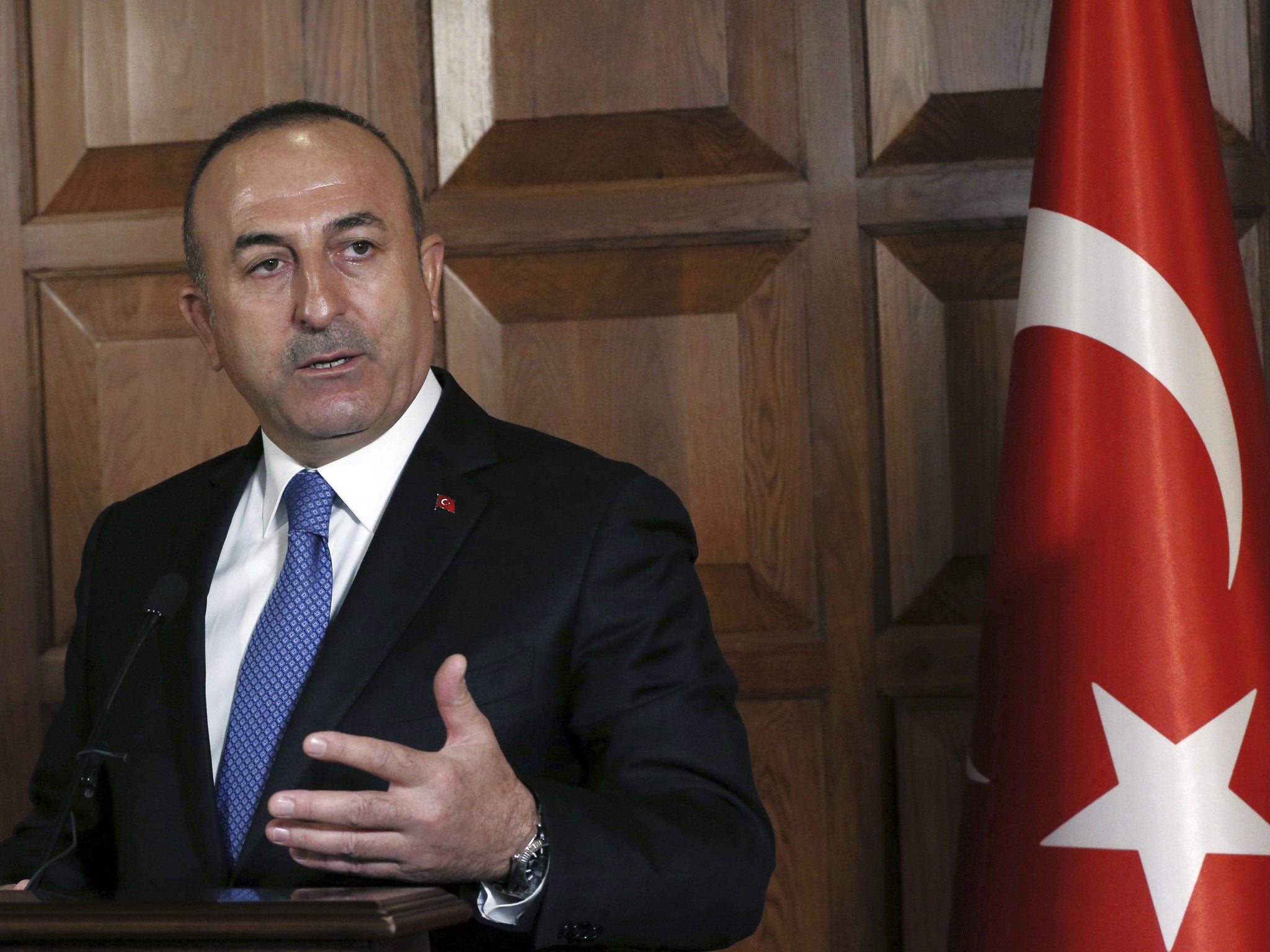EU says Turkey loses way on road to membership since failed coup
Turkey challenges EU to finally decide whether the country can join the bloc

Your support helps us to tell the story
From reproductive rights to climate change to Big Tech, The Independent is on the ground when the story is developing. Whether it's investigating the financials of Elon Musk's pro-Trump PAC or producing our latest documentary, 'The A Word', which shines a light on the American women fighting for reproductive rights, we know how important it is to parse out the facts from the messaging.
At such a critical moment in US history, we need reporters on the ground. Your donation allows us to keep sending journalists to speak to both sides of the story.
The Independent is trusted by Americans across the entire political spectrum. And unlike many other quality news outlets, we choose not to lock Americans out of our reporting and analysis with paywalls. We believe quality journalism should be available to everyone, paid for by those who can afford it.
Your support makes all the difference.In the face of increasing criticism and worsening relations, the European Union and Turkey challenged each other on Wednesday to come out and say whether they want Ankara’s bid to join the EU to continue.
In a high-stakes game of political chicken, Turkish President Recep Tayyip Erdogan said the EU wouldn’t be able to reach the “final point” and end its ties with Turkey for fear of jeopardising a deal to curb the flow of migrants from Africa and the Middle East to Europe.
Hours later, in Brussels, EU enlargement commissioner Johannes Hahn bluntly said that “it is time Ankara tells us what they really want,” in the wake of a report assessing Turkey’s status as a candidate for membership in the bloc. The report highlighted what the EU saw as backsliding on essential human rights and rule of law standards.
The report, issued Wednesday, came after Turkey’s recent clampdown on media freedoms and the arrests of 10 pro-Kurdish legislators.
“These various actions, including considerations of reintroducing the death penalty, seem to be increasingly incompatible with Turkey’s official desire to become a member of the European Union,” Mr Hahn said.
“In its own interest, Turkey urgently needs to stop moving away from the EU,” Mr Hahn said.
In the escalating standoff on Turkey’s protracted membership bid, Mr Erdogan rose to the challenge.
“They say unabashedly and shamelessly that the EU should review its negotiations with Turkey,” Mr Erdogan told a business group in Istanbul. “You are late, go and review them as soon as you can. But don't just review them – go and make your final decision.”
The Turkish leader added: “You know those three million refugees in Turkey? They say there is a problem. What if the negotiations end and they open the gates, where would we put those three million refugees? That is their worry. That is why they cannot come to the end point.”
Turkish Foreign Minister Mevlut Cavusoglu said the EU had to stop its “threatening” attitude.
“Make a decision, brother,” Mr Cavusoglu said. “If you want the negotiations to stop, then stop them. If you want them to continue we are ready. But you have to treat us as equal partners. We cannot advance as long as you see us as second-rate country.”
Omer Celik, the minister in charge of Turkey’s EU negotiations, criticised the union's report. He called it “far from being constructive or providing guidance” and said EU leaders lacked “vision and the ability to produce projects.”
On the visa-free travel deal, Mr Celik said Turkey was determined not to alter its anti-terrorism laws. He said EU Vice President Frans Timmermans would arrive in Turkey for discussions on the issue.
“If we can reach progress during talks with Timmermans, this will be recorded. If we cannot, then this process will have died toward the end of the year,” Mr Celik said.
In March, Turkey and the EU reached an agreement in which Turkey would stem the flow of refugees and migrants to Greece in return for incentives including fast-tracked membership talks, billions of euros in aid for Syrian refugees in Turkey and visa-free travel for Turkish citizens.
The deal has hit a hurdle over Turkey's reluctance to change its anti-terrorism laws – one of the conditions for the lifting of visa restrictions on Turkish citizens traveling to Europe.
On Tuesday, Jean-Claude Juncker, the president of the European Commission, warned Turkey that its crackdown on political opponents and the media goes against EU values.
Mr Juncker also called on Mr Erdogan to immediately say “whether Turkey really wants to be – yes or no – a member of the European Union.” He added that the Turkish leader would only have himself to blame if the EU does not grant visa-free travel in Europe to Turkish citizens soon.
Turkey has been in talks to join the European Union since October 2005, but progress has been held up, often by political opposition and particularly due to resistance from Cyprus, an EU member. The Mediterranean island has been divided since 1974, when Turkish troops occupied its northern third following a coup by supporters of a union with Greece.
Associated Press
Join our commenting forum
Join thought-provoking conversations, follow other Independent readers and see their replies
Comments